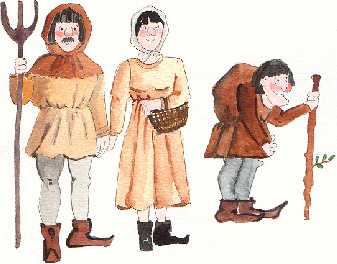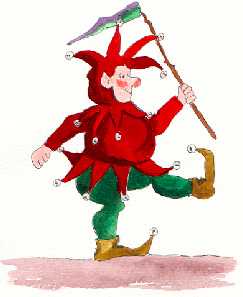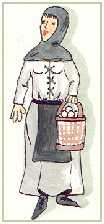 |
 |
 |
| |
Most villages and towns held weekly markets, where people used to sell their goods. We must remember that in the Middle Ages there were no factories and few ships used to trade abroad. So wealth came from the land and from selling what the land produced. By 1300, though, ships used to travel from Genoa and Venice carrying precious metals, silks and other luxury goods from the Eastern Mediterranean out to England and Flanders (Belgium). There they took wool, coal and timber in return. German and Dutch ships took iron, copper and lead south to the Mediterranean, and brought back wine, oil and salt. |
|
| |
 |
|
At the market, people could buy vegetables, live animals, pots, pans, and knives. Any peasant could take his goods to sell them at the market, but he would have to pay a tax to stand in the square with his goods displayed on the ground. Richer tradesmen set up stalls. Fairs, held once or twice a year usually on the feast of one saint, gave people the chance to enjoy themselves. They were international markets, where merchants from all over Europe came to buy and sell their goods. |
|
| |
Rich and poor men used to go to the fair to have a good time seeing the jugglars, fire-eaters, sword-swallowers, acrobats, stilt-walkers, buffoons and musicians. People used to gamble on cockfights, wrestlers and dogs baiting bears. |
|
| |
There were no theatres but plays were performed in churches or on carts. We must not forget that Medieval drama was started by the Church, when in the 11th century priests began to add short scenes of the Bible to the major religious services, such as Christmas or Easter. So, medieval plays were religious, the early ones were called Miracle Plays, in which stories from the Bible and the life of saints were acted out. Later on, in the 1400s, morality plays showed good fighting against evil, war between Vice and Virtue. |
|
 |
|
| Answer the following questions: |
|
||
 |
| |
|
|
 |
|
 |
| |
|
|
 |
 |